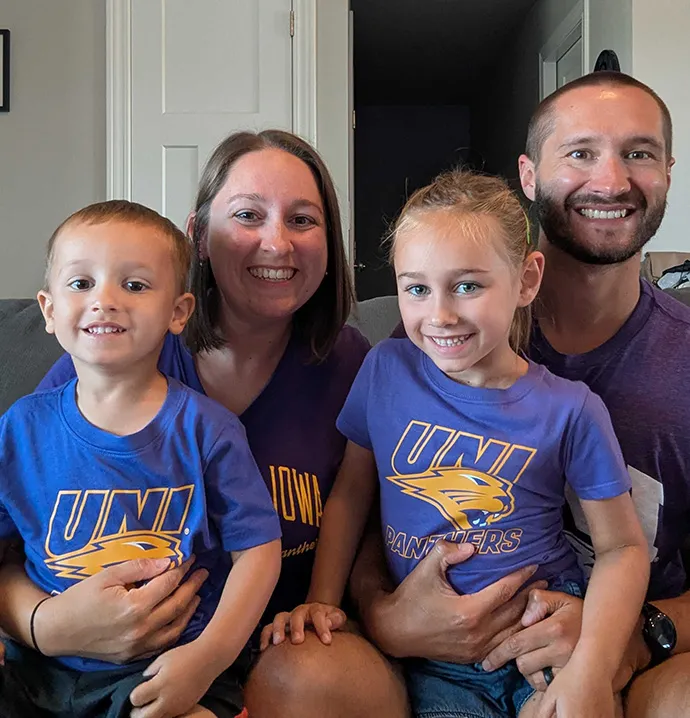Profiting from your likeness
Profiting from your likeness
In the wake of his scintillating performance in the NCAA football championship game between Louisiana State University and Clemson, fans and the media lionized quarterback Joe Burrow. What differentiated Burrow and Iowa’s own Maddie Poppe, another talented young adult? There were no constraints upon Ms. Poppe’s ability to earn money from her talents and likeness. Until he finished his collegiate career, Burrow could not receive payments for use of his likenesses. LSU was free to make as much money as possible from his wondrous skills, but he was not.
The California legislature recently enacted a bill allowing NCAA athletes to profit from use of their likeness. For years, the NCAA had prohibited such payments, ostensibly to preserve amateurism. Economists might label the prohibition as exploitation. Since California universities employ a large proportion of college athletes, the state’s new law forces NCAA authorities to scramble. Athletic directors and coaches of schools outside of California are wringing their hands over their perceived increased competitive disadvantages in recruiting top players relative to, say, the University of Southern California’s and UCLA’s sports teams.
Naturally, the NCAA’s scramble runs the risk of legislating in haste and repenting at leisure. The California legislation should have been superfluous; the NCAA should never have denied athletes opportunities to profit from their talents and personalities. Why should Burrow have been denied opportunities that Ms. Poppe possessed? Certainly college coaches make handsome amounts from shoe endorsements; in fact, coaches often dictate which brand of shoes their players wear--so much for choice. Why shouldn’t players have such opportunities?
The NCAA does have some legitimate concerns about athletes gaining endorsement opportunities. There is the never-ending concern about “competitive balance” in amateur, as well as professional team sports. Many NCAA rules presumably exist to promote competitive balances (although tell that to perennial losing teams). Athletes playing for UCLA and USC presumably will have greater opportunities for endorsements than athletes performing for Iowa or Iowa State.
A more serious concern, though, is that players may end up endorsing dubious products or consorting with equally dubious characters. A nineteen-year-old’s ability to discern between good or nefarious opportunities is questionable. Even professional sports teams make errors, as witness the Houston sports venue formerly known as Enron Field. Universities have also been embarrassed by accepting donations from alumni or other donors, who subsequently end up in prison for various crimes. Given time, I suppose the NCAA and university representatives might create a set of workable guidelines to assist athletes in making good decisions.
Another potential problem is how star athletes, who are likely to reap tens if not hundreds of thousands of dollars in endorsement income, handle their money. Older, professional athletes, even with league- and team-sponsored personal finance seminars and counselors, often find themselves bankrupt a short time after retirement. Will nineteen- or twenty-year-old players exhibit better discretion? There will inevitably be some ugly scandals, as callow athletes squander their earnings.
Payments for endorsement may also deepen differences between male and female collegiate athletes, as the greater popularity of men’s sports results in more lucrative endorsements for football and men’s basketball players. Whether there will be differences between white and non-white players remains to be seen. Teams may be riven with dissent, if a star player reaps far more than teammates.
Finally, in a world rife with sports betting, the NCAA is justly worried about players accepting endorsements from covert gambling interests. Although the NCAA and the professional leagues have suppressed most opportunities for gamblers to corrupt players, freely-floating money will make the NCAA’s job more difficult.
These are legitimate concerns, although not sufficient enough to justify denying players their civil liberties in being able to accept payments. The danger is that California’s legislation may cause the NCAA and institutions of higher education to panic and impose ill-considered legislation in response. The NCAA probably would have been better off taking its head out of the sand and confronting payments decades ago.
The views and opinions expressed are those of the author and do not imply endorsement by the University of Northern Iowa.




